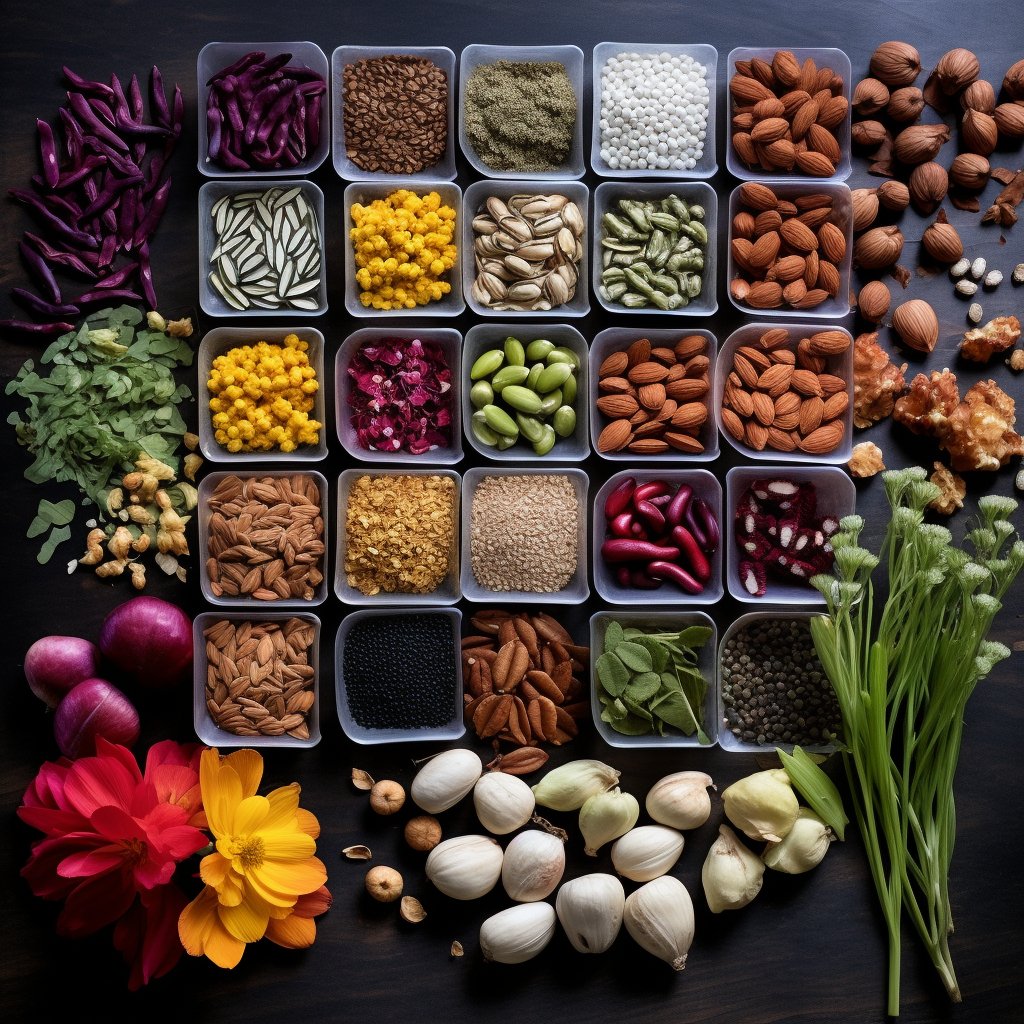Heirloom Seeds: Cultivating Flavor, Tradition, and Biodiversity in the Garden
Introduction
In an era dominated by mass agriculture and uniform commercial crops, heirloom seeds shine as a beacon of biodiversity, tradition, and superior flavor. Passed down through generations, these seeds represent more than just planting material—they are a living legacy of traditional agriculture and culinary diversity. In this article, we explore the value of heirloom seeds and their significance for gardeners, farmers, and food lovers alike.
1. A Spectrum of Varieties
Heirloom seeds offer a stunning range of plant types, each with distinct flavors, colors, and growth habits. Unlike hybrid seeds bred for consistency and transportability, heirlooms celebrate diversity. This diversity allows gardeners to grow unique and often rare varieties, transforming gardens into vibrant showcases of agricultural history.
2. Exceptional Flavor Profiles
One of the standout qualities of heirloom produce is its flavor. Gardeners and chefs alike seek heirloom vegetables and fruits for their rich, nuanced taste. Whether it's a juicy tomato, a sweet melon, or a nutty grain, heirloom varieties provide a culinary experience that mass-produced crops often lack.
3. Guardians of Genetic Diversity
Heirloom seeds are vital for preserving genetic diversity in agriculture. This genetic variation provides the resilience necessary to adapt to climate changes, resist pests, and recover from disease outbreaks. By cultivating heirlooms, gardeners become stewards of biodiversity, protecting it for future generations.
4. Adapted to Local Environments
Many heirloom seeds have been grown and refined in specific regions over decades or centuries. This local adaptation often translates into natural resistance to pests and diseases and a reduced need for water and chemical inputs. Heirlooms can thrive in home gardens with fewer resources, making them a sustainable choice for eco-conscious growers.
5. Link to Cultural Legacy
Each heirloom seed tells a story. Cultivating these varieties connects us with the agricultural practices and food traditions of our ancestors. From indigenous corn varieties to old-world European lettuces, heirlooms preserve the cultural identity of communities and serve as edible artifacts of human history.
6. Fostering Sustainable Farming Practices
Choosing heirloom seeds supports a decentralized and community-driven approach to agriculture. Unlike patented hybrid seeds, heirlooms can be saved and replanted year after year. This encourages seed sharing and community seed banks, promoting food sovereignty and reducing dependence on industrial seed companies.
7. Culinary Inspiration from Garden to Table
Heirloom crops inspire creativity in the kitchen. Their vibrant colors and complex flavors elevate home cooking and gourmet dishes alike. Chefs often build entire menus around heirloom ingredients, showcasing their uniqueness and celebrating farm-to-table dining.
8. Environmental Impact and Resilience
Heirloom gardening reduces the environmental toll of agriculture. With lower input needs and greater resilience, these plants help mitigate the ecological footprint of food production. Their ability to thrive without synthetic fertilizers or pesticides aligns perfectly with regenerative agriculture practices.
9. Educational Value for New Gardeners
Growing heirloom varieties offers a hands-on education in plant biology, genetics, and sustainable farming. It helps new gardeners understand seed saving, seasonal planting, and the broader importance of agricultural heritage. This makes heirloom gardening an enriching and empowering experience.
10. Economic Benefits for Small-Scale Farmers
Heirloom produce can be a valuable niche product at farmers markets and specialty grocers. Their unique appeal often allows small farmers to command premium prices. By cultivating heirlooms, growers can differentiate themselves in a competitive market while supporting agricultural biodiversity.
11. Preserving Endangered Varieties
Many heirloom varieties are at risk of extinction due to lack of commercial interest. By growing and sharing these seeds, gardeners actively participate in their preservation. Seed libraries, exchanges, and nonprofit seed companies play a crucial role in this conservation effort.
12. Community Building Through Seed Sharing
Heirloom gardening fosters connection and community. Gardeners often exchange seeds, stories, and tips, creating networks rooted in shared values of sustainability, heritage, and cooperation. These exchanges contribute to resilient local food systems.
13. Advocacy and Food Sovereignty
Planting heirlooms is an act of advocacy for food independence. It challenges the dominance of agribusiness and empowers individuals and communities to reclaim control over their food sources. Heirlooms are a symbol of resistance and self-sufficiency.
14. Supporting Pollinators and Biodiversity
Heirloom flowers and vegetables often attract a greater variety of pollinators due to their open-pollinated nature. This contributes to overall garden biodiversity and supports essential ecosystem services.
15. Getting Started with Heirloom Gardening
Beginning your heirloom gardening journey is easy. Start by selecting a few well-suited varieties for your climate and soil. Explore local seed exchanges or reputable online retailers. Keep records of plant performance and save seeds to share with others. Over time, you'll cultivate not just a garden, but a legacy.
Conclusion
Heirloom seeds are more than just a nostalgic nod to the past; they are vital tools for a resilient, flavorful, and sustainable future. They invite us to reconnect with the land, our heritage, and each other. Whether you're a seasoned gardener or a curious beginner, heirloom seeds offer a pathway to meaningful and impactful gardening.
Frequently Asked Questions (FAQs)
1. What qualifies a seed as an heirloom?
Heirloom seeds are typically open-pollinated and passed down through generations, often with a history of at least 50 years or more.
2. Can heirloom seeds be saved and replanted?
Yes, one of the key benefits of heirloom seeds is their ability to be saved and regrown each season without losing their traits.
3. Are heirloom plants harder to grow?
Not necessarily. Many heirlooms are well adapted to local climates and can be easier to grow than commercial hybrids.
4. Where can I buy heirloom seeds?
Heirloom seeds are available from seed exchanges, local nurseries, and specialized seed companies that focus on biodiversity.
5. Are heirloom vegetables healthier than hybrids?
While nutritional content can vary, heirloom vegetables often contain more diverse phytonutrients and antioxidants due to their genetic diversity.
```

